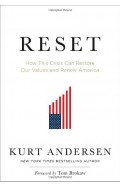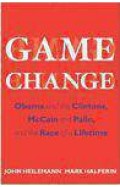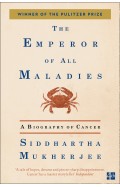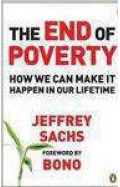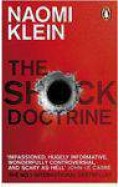A HOUSE IN LAHORE
By: Hazel Selzer Kahan
-
Rs 1,795.50
- Rs 1,995.00
- 10%
You save Rs 199.50.
Due to constant currency fluctuation, prices are subject to change with or without notice.
Fleeing Germany in 1933 and Italy in 1937, two 27-year-old Jewish physicians seek a new future in British India. In 1940, now a family of four, they are arrested and interned by the British as “enemy aliens” until their release in 1946. The children are sent to boarding schools while their parents build a medical practice in what has become Pakistan. Following regime change, Jews are no longer welcome and in 1971, the family leaves Lahore forever.
This memoir describes the contradictions and dilemmas of growing up Jewish in internment and post-British Raj Muslim Pakistan, shuffling identities while learning the futility of belonging and the negotiable meaning of home. Drawing on extensive boarding school correspondence, the book unflinchingly examines the power of letter writing to bind a scattered family but also its inability to prevent schisms.
Her father’s death releases in the author a compulsion to discover whether her beloved childhood house still stands. Forty years after leaving “forever,” she returns to the town of her birth, unsure whether welcome or rejection await but unprepared for what she finds!
Because my special empathy with Hazel Kahan’s narrative comes from also being interned during WWII, growing up neither European nor Asian in China, and revisiting my Asian roots much later in life, I find the account of her return to Lahore enchanting. Despite the book’s title, the reader will decide whether Pakistan was ever truly her “home.” What a story! —Tom Scovel, author of The Year China Changed
Kahan’s beautiful, noble quest gives the reader a vertiginous sense of life’s fragility—of just how swiftly all that one relies upon can be shattered by prejudice and political upheaval. Yet for all that goes wrong—is wrong—light emerges, manifest in language, letters and longing, in love and dignity among the ruins. The life explored here—tenderly considered—offers proof that humanity may yet defeat the inhumane. —Joseph Mackin, author of the novel Pretend All Your Lift
In this fascinating memoir, we learn about the full, rich, interesting lives of Hazel Kahan and her incredible family. As readers, we are the beneficiaries of her willingness to reflect on struggles that many might rather avoid, helping us to discover how international persecution and internment shape personal and familial lives, and how false preconceptions and stereo-types can be. —Nora Kramer, founder of Youth Empowered Action (YEA) Camp
Decades later, Hazel Kahan makes a highly evocative pilgrimage back to a very different Pakistan from the emerging country she left in 1971. This is a complex and important piece of history, well told. Her story and mine came together first at Woodstock School in India, and now at WPKN in Bridgeport—where as probing interviewer on air Hazel displays the same abundant investigative talent that’s on every page of this timely new book. —Jim Motavalli, author and WPKN-FM host.
Fleeing Germany in 1933 and Italy in 1937, two 27-year-old Jewish physicians seek a new future in British India. In 1940, now a family of four, they are arrested and interned by the British as “enemy aliens” until their release in 1946. The children are sent to boarding schools while their parents build a medical practice in what has become Pakistan. Following regime change, Jews are no longer welcome and in 1971, the family leaves Lahore forever.
This memoir describes the contradictions and dilemmas of growing up Jewish in internment and post-British Raj Muslim Pakistan, shuffling identities while learning the futility of belonging and the negotiable meaning of home. Drawing on extensive boarding school correspondence, the book unflinchingly examines the power of letter writing to bind a scattered family but also its inability to prevent schisms.
Her father’s death releases in the author a compulsion to discover whether her beloved childhood house still stands. Forty years after leaving “forever,” she returns to the town of her birth, unsure whether welcome or rejection await but unprepared for what she finds!
Because my special empathy with Hazel Kahan’s narrative comes from also being interned during WWII, growing up neither European nor Asian in China, and revisiting my Asian roots much later in life, I find the account of her return to Lahore enchanting. Despite the book’s title, the reader will decide whether Pakistan was ever truly her “home.” What a story! —Tom Scovel, author of The Year China Changed
Kahan’s beautiful, noble quest gives the reader a vertiginous sense of life’s fragility—of just how swiftly all that one relies upon can be shattered by prejudice and political upheaval. Yet for all that goes wrong—is wrong—light emerges, manifest in language, letters and longing, in love and dignity among the ruins. The life explored here—tenderly considered—offers proof that humanity may yet defeat the inhumane. —Joseph Mackin, author of the novel Pretend All Your Lift
In this fascinating memoir, we learn about the full, rich, interesting lives of Hazel Kahan and her incredible family. As readers, we are the beneficiaries of her willingness to reflect on struggles that many might rather avoid, helping us to discover how international persecution and internment shape personal and familial lives, and how false preconceptions and stereo-types can be. —Nora Kramer, founder of Youth Empowered Action (YEA) Camp
Decades later, Hazel Kahan makes a highly evocative pilgrimage back to a very different Pakistan from the emerging country she left in 1971. This is a complex and important piece of history, well told. Her story and mine came together first at Woodstock School in India, and now at WPKN in Bridgeport—where as probing interviewer on air Hazel displays the same abundant investigative talent that’s on every page of this timely new book. —Jim Motavalli, author and WPKN-FM host.
Zubin Mehta: A Musical Journey (An Authorized Biography)
By: VOID - Bakhtiar K. Dadabhoy
Rs 892.50 Rs 1,050.00 Ex Tax :Rs 892.50
THE FORGOTTEN LEGACIES OF GANGA RAM 1851 – 1927
By: Tahmina Aziz Ayub
Rs 1,345.50 Rs 1,495.00 Ex Tax :Rs 1,345.50
Discontent and Its Civilizations: Dispatches from Lahore, New York and London
By: Mohsin Hamid
Rs 1,440.75 Rs 1,695.00 Ex Tax :Rs 1,440.75
The Origins of Political Order From Prehuman Times to the French RevolutioN
By: Francis Fukuyama
Rs 4,045.50 Rs 4,495.00 Ex Tax :Rs 4,045.50
Reset: How This Crisis Can Restore Our Values and Renew America
By: Kurt Andersen
Rs 450.00 Rs 500.00 Ex Tax :Rs 450.00
How To Win A Cosmic War God Globalization And The End Of War
By: Reza Aslan
Rs 625.50 Rs 695.00 Ex Tax :Rs 625.50
Game Change Obama And The Clintons McCain And Palin And The Race Of A Lifetime
By: John Heilemann
Rs 715.50 Rs 795.00 Ex Tax :Rs 715.50
Made to Stick: Why Some Ideas Take Hold and Others Come Unstuck
By: Chip Heath & Dan Heath
Rs 2,695.50 Rs 2,995.00 Ex Tax :Rs 2,695.50
THE FORGOTTEN LEGACIES OF GANGA RAM 1851 – 1927
By: Tahmina Aziz Ayub
Rs 1,345.50 Rs 1,495.00 Ex Tax :Rs 1,345.50
Discontent and Its Civilizations: Dispatches from Lahore, New York and London
By: Mohsin Hamid
Rs 1,440.75 Rs 1,695.00 Ex Tax :Rs 1,440.75
Zubin Mehta: A Musical Journey (An Authorized Biography)
By: VOID - Bakhtiar K. Dadabhoy
Rs 892.50 Rs 1,050.00 Ex Tax :Rs 892.50
THE FORGOTTEN LEGACIES OF GANGA RAM 1851 – 1927
By: Tahmina Aziz Ayub
Rs 1,345.50 Rs 1,495.00 Ex Tax :Rs 1,345.50
Discontent and Its Civilizations: Dispatches from Lahore, New York and London
By: Mohsin Hamid
Rs 1,440.75 Rs 1,695.00 Ex Tax :Rs 1,440.75












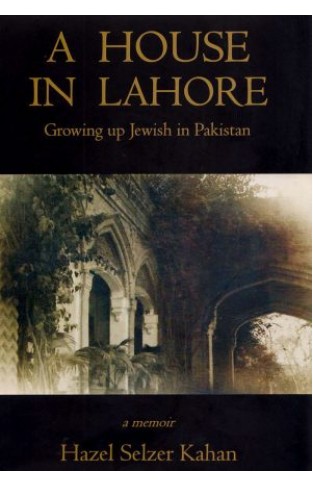
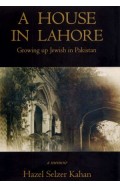
-120x187.jpg?q6)





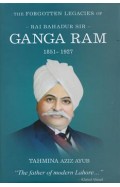
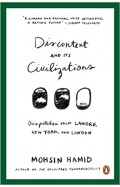
-120x187.jpg?q6)
